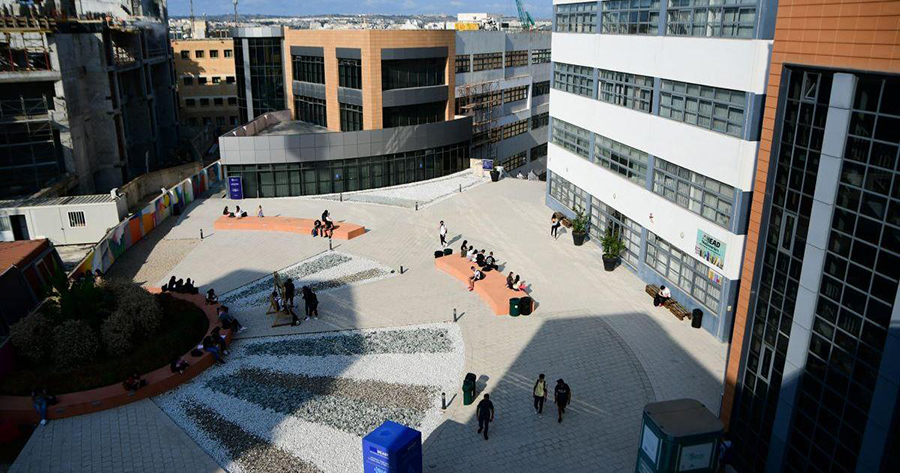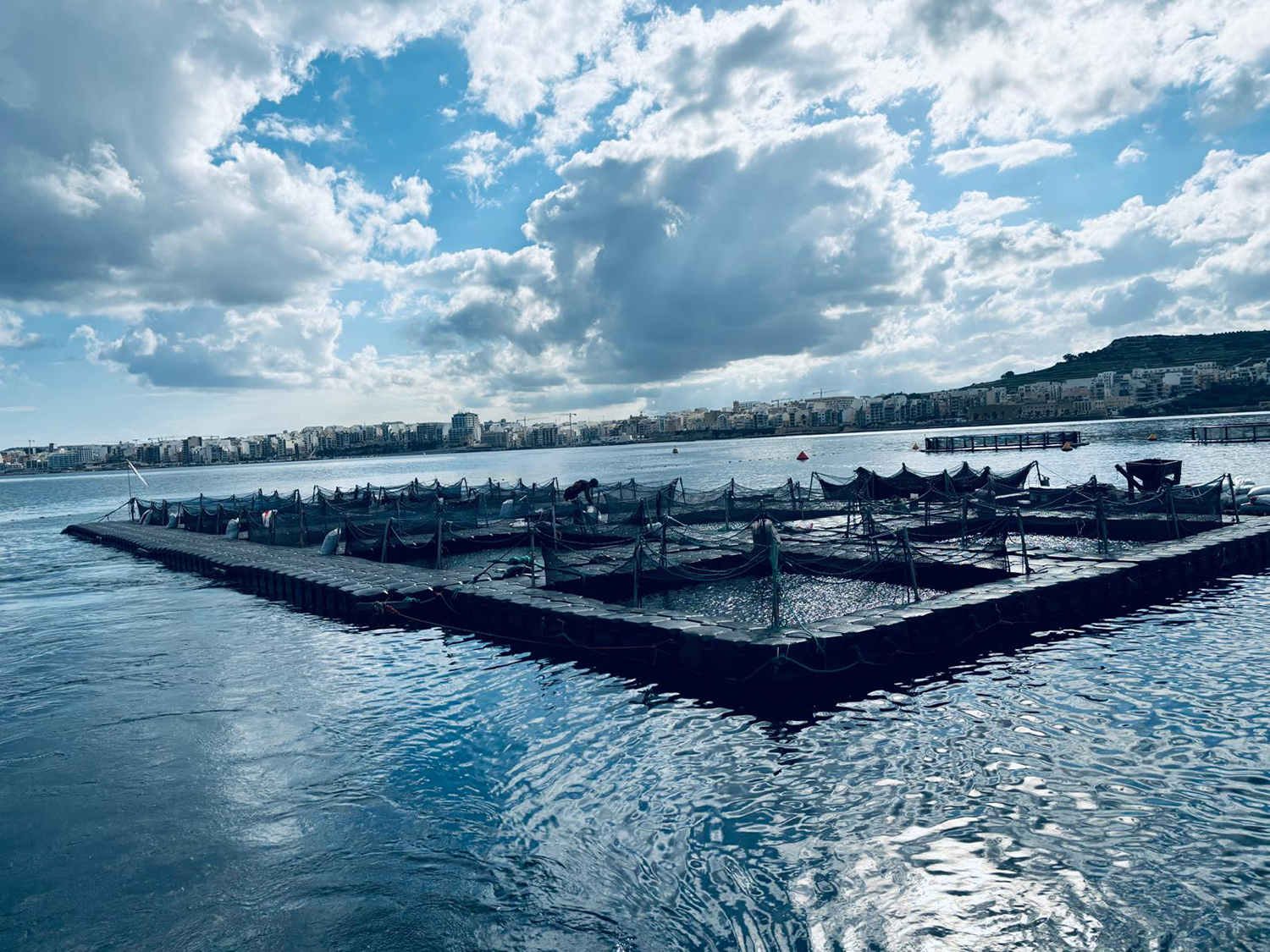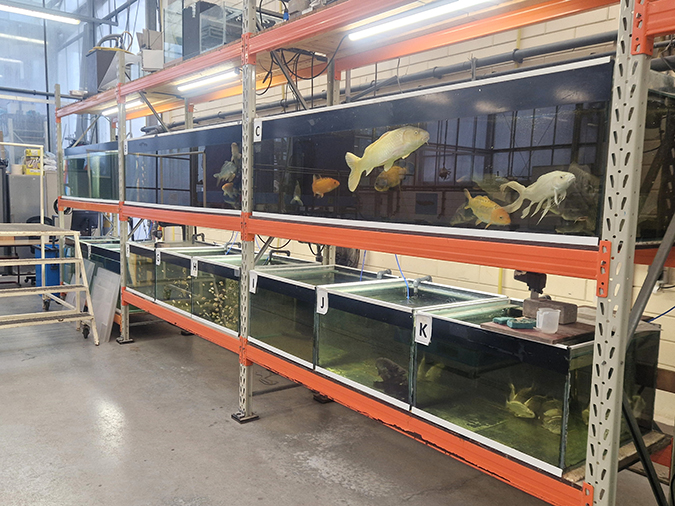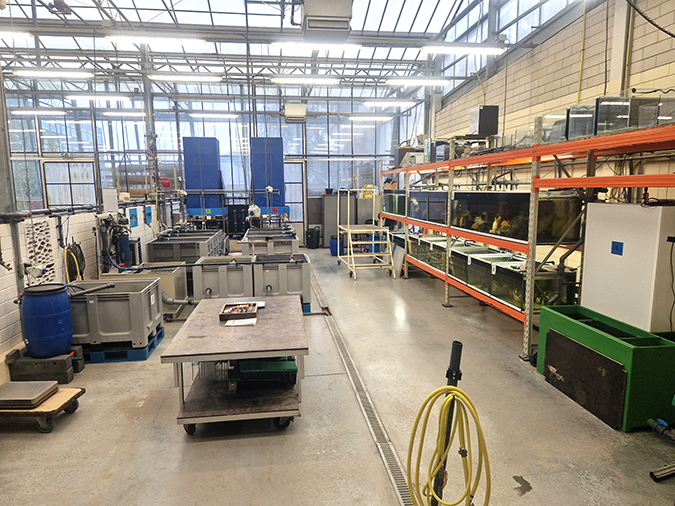Grm Novo mesto - centre of biotechnics (Slovenia)
Grm Novo mesto - centre of biotechnics and tourism is centre that consists of several units:
- Secondary school for Agriculture Grm and biotechnical gymnasium,
- Secondary school for gastronomy and tourism,
- Vocational college,
- Dormitory,
- Businesses connected to educational center,
- Institute for rural development, which is core for regional development in the field of agriculture, rural development, nature preservation and tourism.
Grm Novo mesto educates students on secondary level and 6th Bologna level (College) with the help of 300 ha educational land and, food production facilities, and a house of culinary and tourism (coffee bar, bakery, restaurant, local shop).
Through profitable activities (agriculture production, food production, food processing, animal breeding, marketing, tourism, recreation, landscape management, environment care, school shops and restaurant) the students are educated in theoretical knowledge and practical skills. Grm Novo mesto orientates students towards seeking options to deploy their own working place in rural area or self-employment. The goal of centre is also development of rural areas in widest form, progress of agriculture, higher competitiveness, environment care and maintenance of cultural and natural heritage. Grm Novo mesto also develops study programmes for lifelong learning.
Grm Novo mesto is considered as a very active public institution in the area of regional development, and in the fields of preparing and operating projects on local, regional, national and EU level. Grm Novo mesto has reached international mobility of experts and students (EU and other countries) and also on other research developing activities.
Website: https://Grm-nm.si
KARDALA LHII (Spain)
Kardala LHII offers specialized education and training in the rapidly growing aquaculture industry (EQF5). Aquaculture, the farming of aquatic organisms such as fish, shellfish, micro-algae and seaweed, has become essential in meeting the global demand for seafood while supporting environmental sustainability. Kardala LHII offers a hands-on learning aquaculture program designed to provide practical, hands-on experience, in aquaculture systems and environments. Students have the opportunity to work directly on aquatic life, learning about water quality, breeding, feeding, harvesting, disease management etc. This hands-on training prepares graduates for immediate employment, as they gain a deep understanding of the complexities of aquaculture and aquatic ecosystems management.
Aquaculture education programs emphasize the importance of sustainable practices, which are essential for minimizing the environmental impact of fish farming. Students also learn about best practices in water conservation, waste management, sustainable feed options, and minimizing the risks of diseases and pollutants. This focus on environmental stewardship ensures that graduates are equipped to promote sustainable aquaculture practices that benefit both the economy and the environment.
KARDALA LHII
Portua Z/G 20830 Mutriku
Basque Country.
Website: https://mutrikuakuakultura.hezkuntza.net/eu/
Facebook: https://www.facebook.com/akuakultura
Instagram: https://www.instagram.com/kardalalhii
LFS EDELHOF (Austria)
Aquaculture production in the northern region of Austria essentially consists of two areas: carp breeding in pond systems and indoor fish production in RAS.
At the Edelhof location there is a carp pond that dates back to the 18th century and has a total area of approx. 2.7 hectares. This is used for teaching students and various courses.
A pilot project for the production and marketing of catfish was started in 2013. Since there is still considerable development potential in Austria, the LFS Edelhof has been operating its own teaching and experimental recirculation system for several years in which 6 tons of fish are produced every year.
The LFS Edelhof offers appropriate courses and training opportunities in aquaculture in collaboration with various partners.
MCAST (Malta)

The Centre for Agriculture, Aquatics, and Animal Sciences at The Malta College of Arts, Science, and Technology (MCAST) is a dynamic hub for education and training in three vital streams: horticulture, aquaculture and fisheries, and animal and veterinary sciences. This centre is committed to equipping students with the skills, knowledge, and practical experience needed to thrive in fields that are crucial for Malta’s economy and environment. It offers students hands-on learning opportunities that mirror real-world scenarios. The centre’s integration of sustainability, innovation, and technology into its curriculum ensures students are well-prepared to address contemporary challenges in agriculture, aquatics, and animal care.
The aquaculture and fisheries stream is robust, with a curriculum that encompasses a wide range of essential topics, including broodstock management, fish nutrition, fish pests and diseases, water quality, fish farm management, fish harvesting, hatchery and fish farm design, fishing practices and technology, fisheries governance and management, and fisheries biology and ecology. Courses are offered at multiple levels of the European Qualifications Framework (EQF), from Levels 3 to 6, culminating in a Bachelor of Science (Honours) in Fisheries and Aquaculture. This comprehensive approach prepares students for careers in sustainable aquaculture and fisheries, providing them with the expertise to support Malta’s blue economy and promote ecological stewardship.
For more information, please contact Ms Kimberly Terribile by email on: kimberly.terribile@mcast.edu.mt
Website: https://mcast.edu.mt
Facebook: https://www.facebook.com/MCASTmt
Instagram: https://www.instagram.com/mcastmt
VAL SKOLER (Norway)
Val skoler offer training in aquaculture at upper secondary school level, EQF 4. The main focus of the training is Atlantic salmon, which is by far the largest farmed species in terms of volume in Norway.
Aquaculture students at Val can also choose to specialize in marine and low-trophic species. Here they learn more about species such as mussels, various macroalgae, sea urchins, and sea cucumbers. As part of the training, students participate in the cultivation of macroalgae in the sea. At Val, the species Sugar kelp (Laminaria saccharina) and Winged kelp (Alaria esculenta) are cultivated. Cultivation ropes are set out in November, and then the growth is followed throughout the winter and spring until harvest in May. The uses for macroalgae are many, and at Val we have tried different methods for preserving and using the algae. Among other things, we have dried the algae (indoors with hot air or outdoors in the sun) and used this in cooking. We have also tried fermenting the algae and used it as a feed ingredient for sheep. It has also been tried as fertilizer on vegetable fields, and a new application that has now emerged is to make biochar from macroalgae with a view to carbon capture and storage in soil.
We want the students through their training at Val to gain a holistic insight into the aquaculture industries and the many different opportunities that cultivating the sea provides with a view to different productions and for different purposes. Farming of macroalgae is an environmentally friendly and effective way of producing protein, hopefully this is something also the European aquaculture industry can be a part of in some years’ time.
ZONE COLLEGE (Netherlands)


Zone.college is a training centre offering education for secondary vocational students and employees in lifelong learning programs. Zone.college is focused on food safety, sustainability, nature, a green living environment and healthy living. To achieve our educational targets, our competent professionals are continuously developing their knowledge and their skills.
Aquaculture skills
The aquaculture department of Zone.college specializes in skill-based education and trains people for executive and day-to-day management tasks in aquaculture operations. Zone.college offers training at its own location, but also provides training programs on demand all over the world.
Education is our expertise
Our training subjects range from Recirculating Aquaculture Systems (RAS) and artificial propagation of fish to fish health, feeding and growth of fish, as well as Biofloc systems and operations. In addition, Zone.college offers curriculum development and Train the Trainer/Teacher courses for the development of practical aquaculture education.
